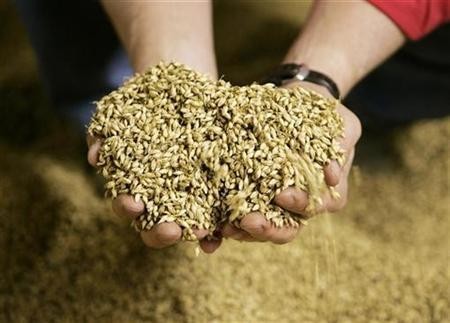China will attempt to increase grain imports during the 13th Five-Year Plan period (2016-2020) instead of upgrading its farming capacity, according to a report by China Daily.
Han Changfu, minister of agriculture, made the announcement after a successful performance in domestic grain production for the past 11 years. The major shift in strategy comes amid a significant increase in demand for grain in the coming years.
As a result of population growth and urbanization, the country will need to provide 700 million tons of grain by 2020. According to Han, the imports will fill the expected supply gap of approximately 100 million tons.
In 2014, China was able to maintain efficient grain production for the 11th consecutive year and it is expected that the grain output will continue to rise this year. Currently, the country's combined grain reserve stood at 230 million tons, the largest in the world, according to China Business News.
For Fan Shenggen, director-general of the International Food Policy Research Institute, the shift in the country's agricultural policy is a welcome sign for the environment.
"The previous rise in farm production has been achieved at a huge environmental and ecological price, seen in, for example, extensive and sometimes excessive use of chemical pesticides and fertilizers," he said.
Ren Zhengxiao, head of the State Administration of Grain, has stated in their website that the government will attempt to strike a balance between tapping international grain resources and managing the domestic market.
However, some agricultural experts such as Zheng Fengtian, a professor of agricultural economics at Renmin University of China, believe that China should not shy away from a controlled increase in grain imports.
According to Zheng, there is a great chance that the country will benefit from the increase in imports of soybeans, corn, meat and milk in the next five years as the international market provides a relatively cheaper price for such products.
"It would be a win-win strategy," he said. "The increase in soybean imports will allow for greater acreage for wheat and rice."




























